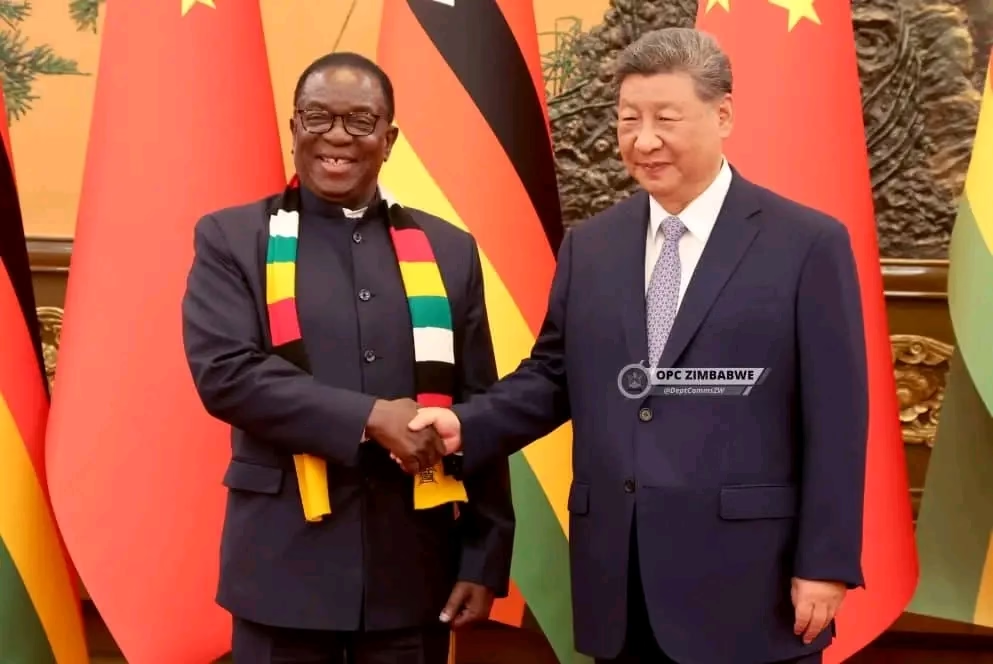
Sixty years of history. A friendship forged in struggle. Today, Zimbabwe and China are redefining that bond for a new era of development and strategic cooperation.
President Emmerson Mnangagwa recently hailed China’s “all-weather” support, recalling his 1965 visit when he led Zanla fighters to China for military training. That historic solidarity, he noted, laid the foundation for the robust and multifaceted partnership that has evolved over decades.
The relationship has since grown far beyond political alignment. Trade between Zimbabwe and China reached $3.8 billion in 2024, a 23.9% increase from the previous year, underscoring the expanding economic footprint of Chinese investment in Zimbabwe. Infrastructure projects have been central to this cooperation: the new Zimbabwe Parliament building, funded with a $140 million Chinese grant, Hwange Thermal Units 7 and 8, Kariba South Hydro expansion, and upgraded airports at Robert Gabriel Mugabe and Victoria Falls illustrate China’s tangible contribution to national development.
This partnership is not just about capital, it is strategic. Beijing’s commitment aligns with Zimbabwe’s Vision 2030, enhancing industrial capacity, modernizing transport, and promoting technological advancement. The collaborative framework stretches across politics, trade, culture, and international coordination, reflecting a deliberate move from historical solidarity to forward-looking mutual growth.
Zimbabwean leaders emphasize the developmental dividends of this long-standing relationship. Infrastructure, energy, and transport projects deliver jobs, expand rural services, and catalyze industrial productivity. Technical training for Zimbabweans in China further strengthens human capital, ensuring skills transfer and capacity building that underpin sustainable growth.
Yet the alliance is as much about diplomacy as it is about development. By deepening bilateral engagement, Zimbabwe positions itself as a reliable investment destination in Africa, while China reinforces its role as a strategic partner on the continent. The relationship has evolved into a template for mutually beneficial collaboration, balancing historical ties with present-day imperatives.
As both nations look ahead, the challenge is to convert investment and infrastructure into inclusive, sustainable development that benefits Zimbabwean communities broadly, while managing debt exposure and ensuring strategic sovereignty. If executed well, Zimbabwe-China ties could remain not just a symbol of friendship, but a cornerstone of national transformation for decades to come.




